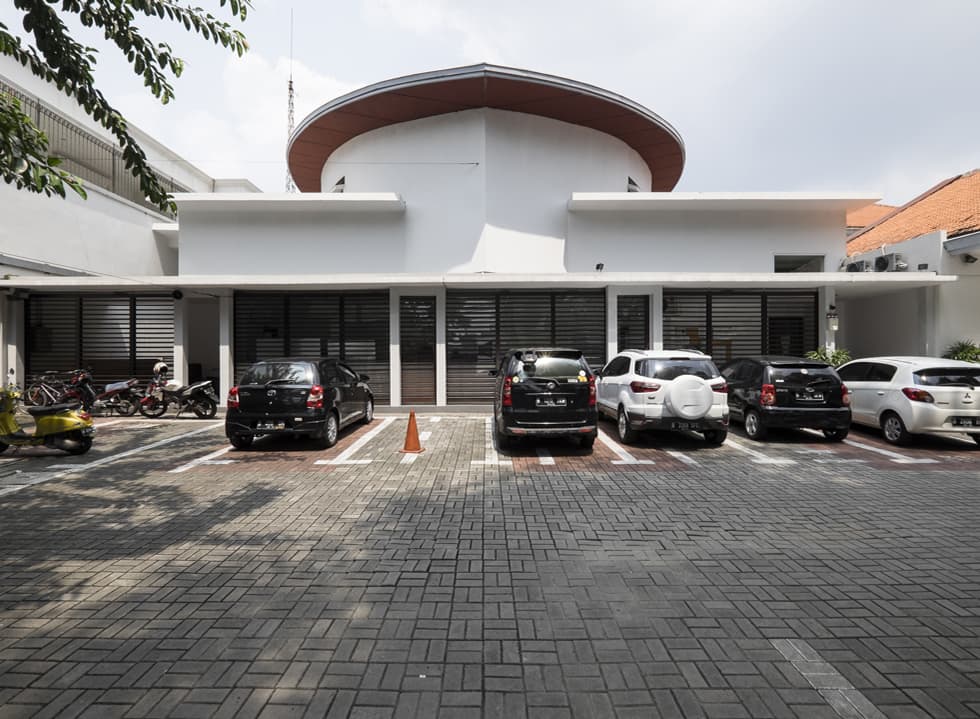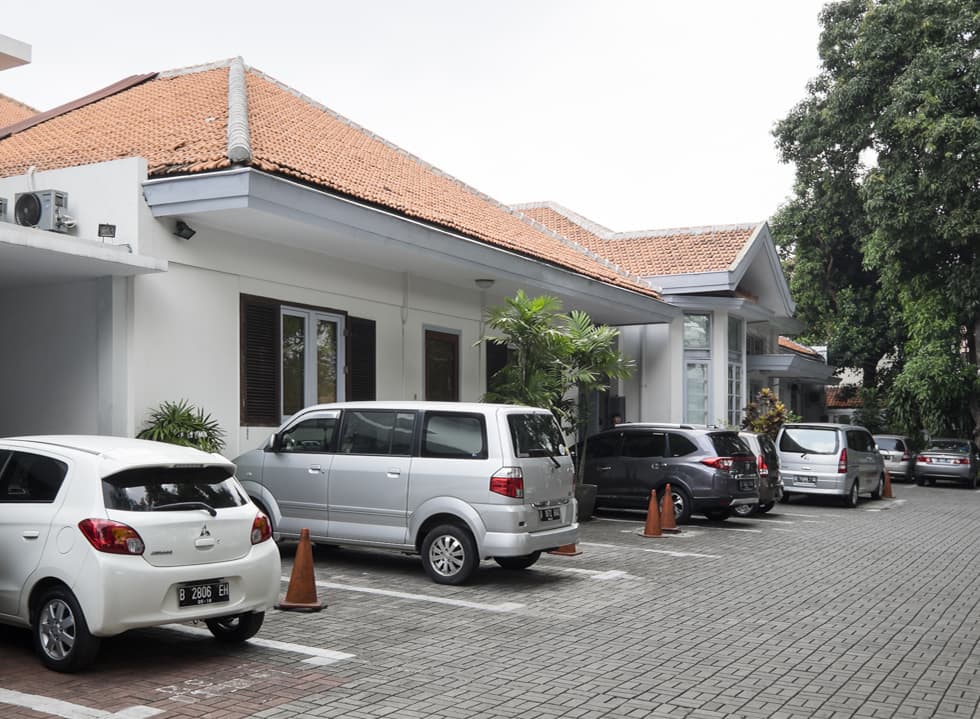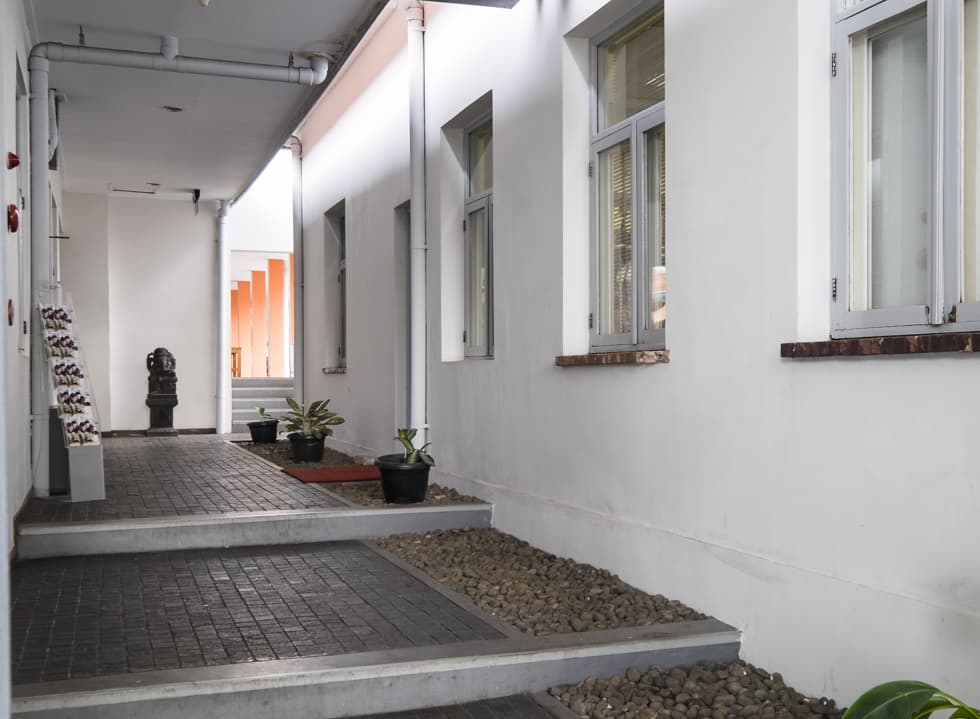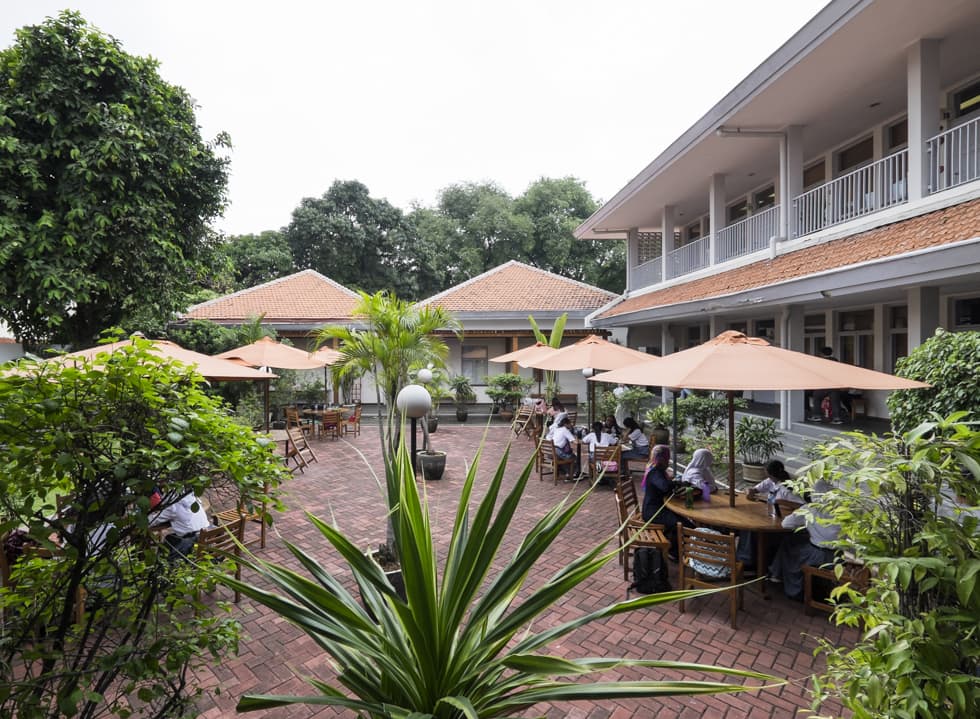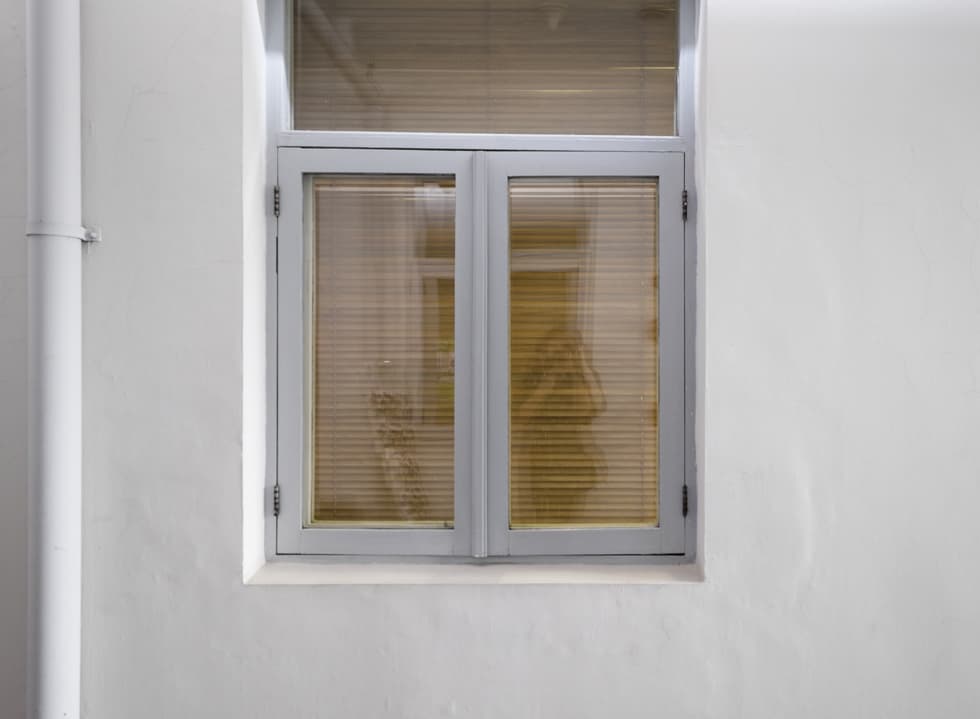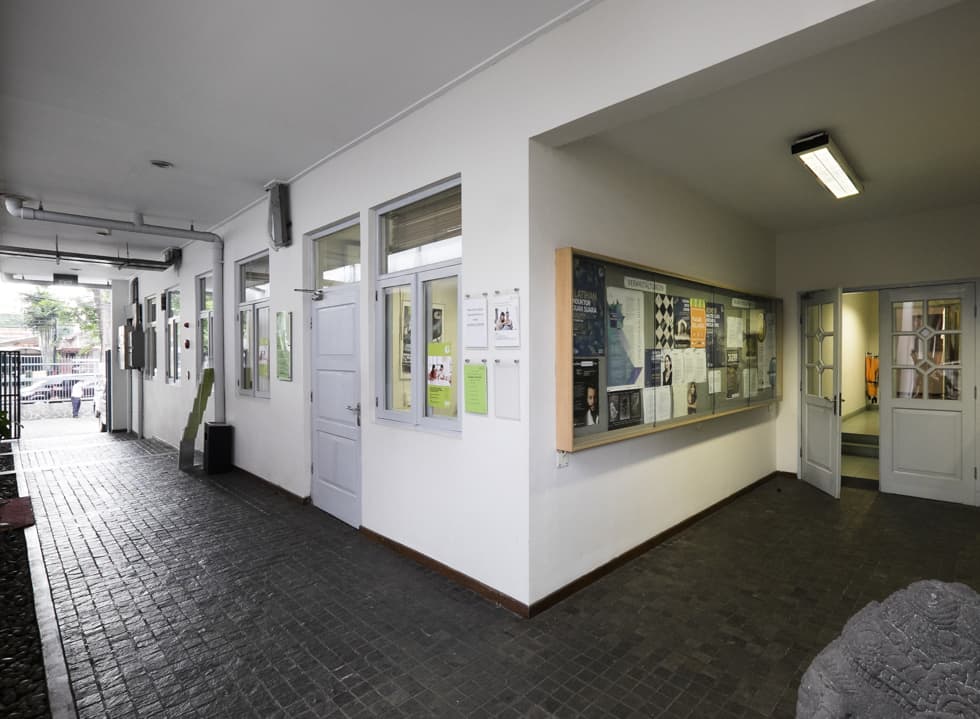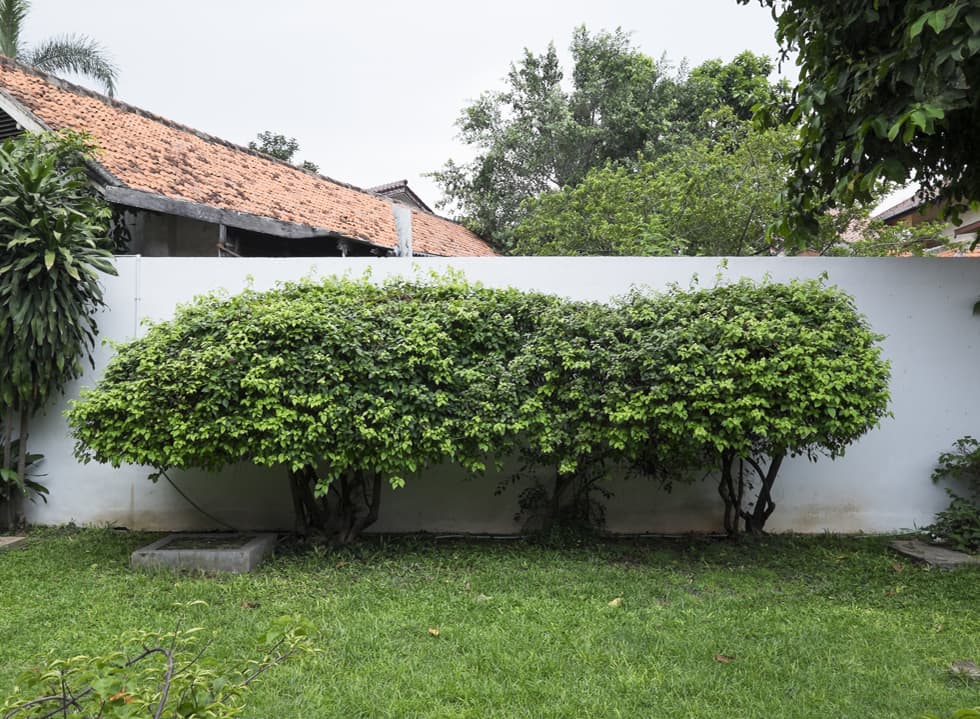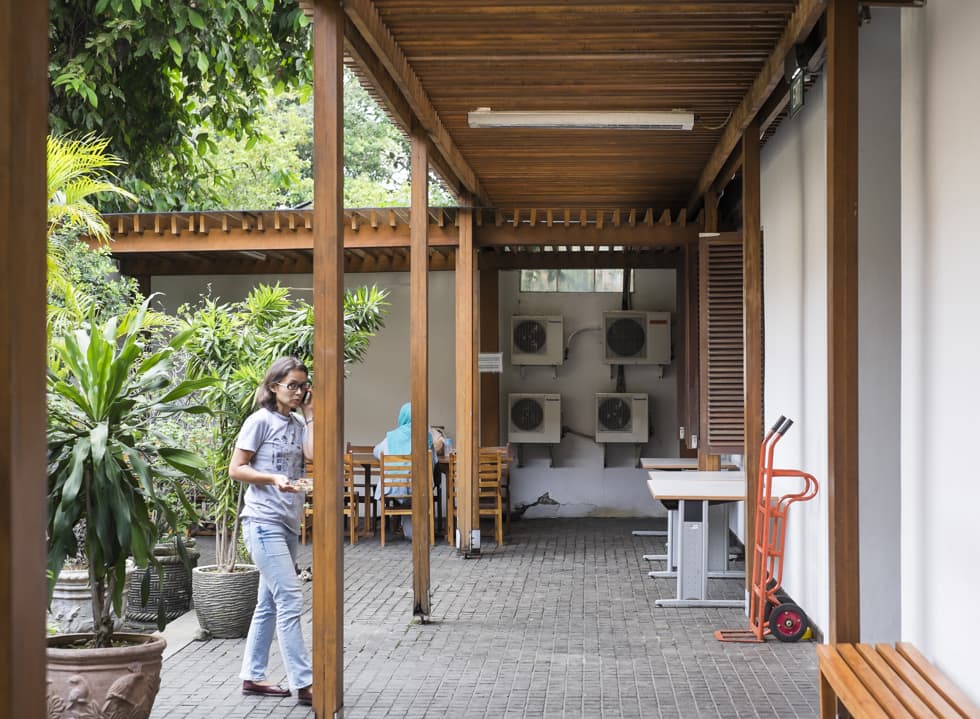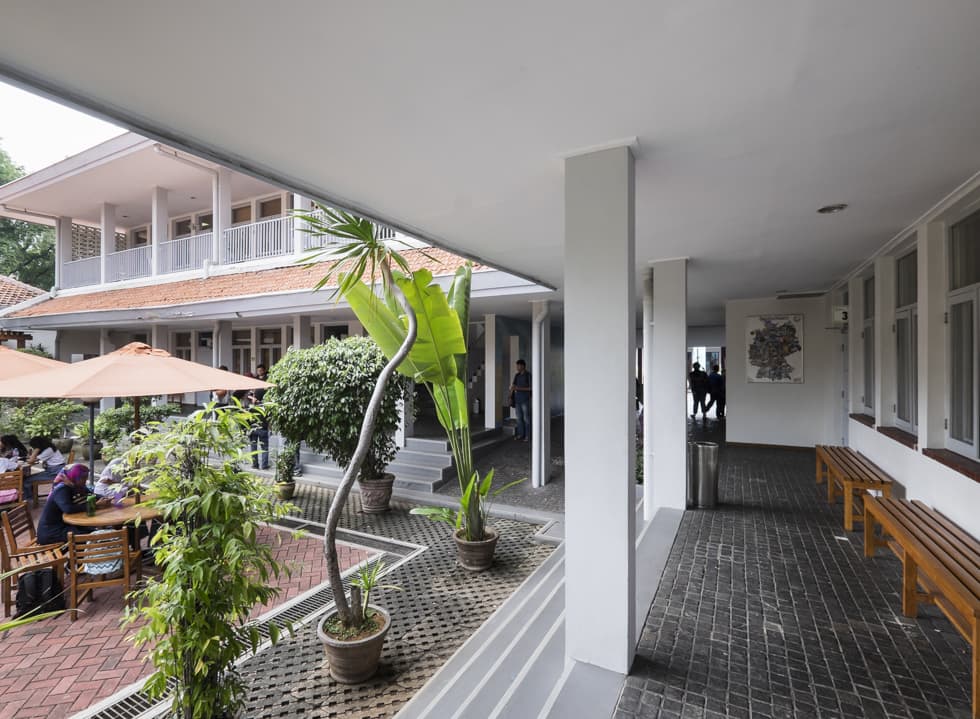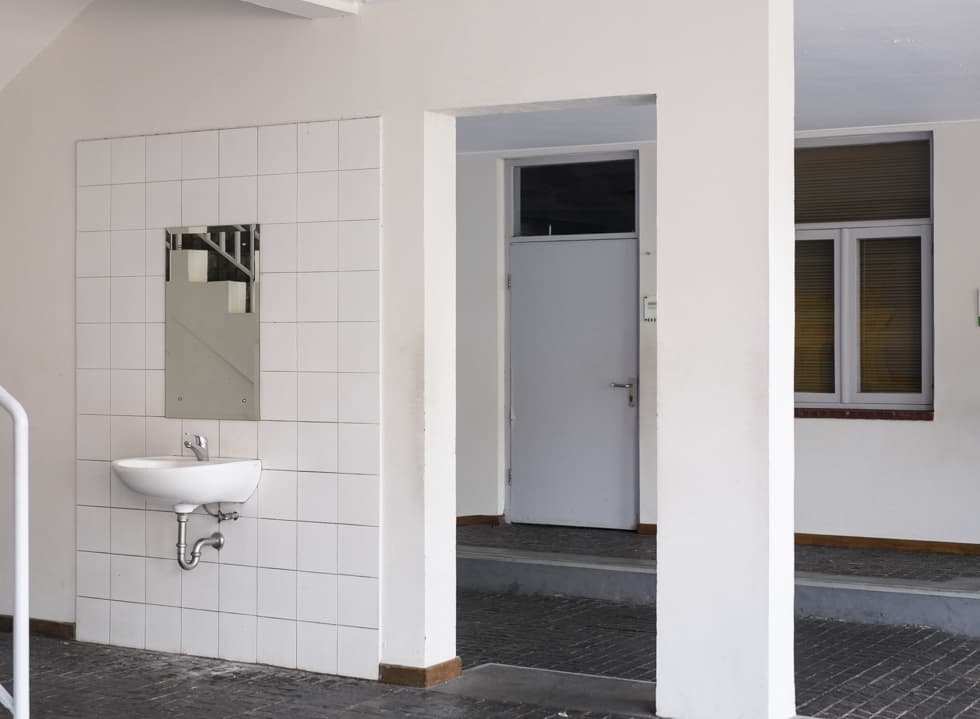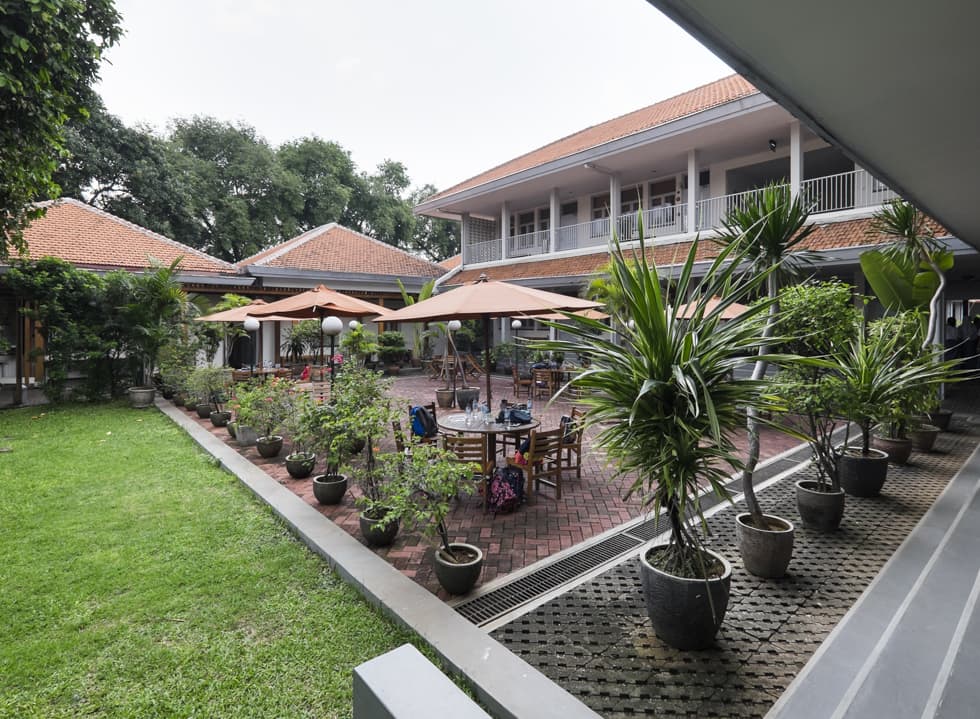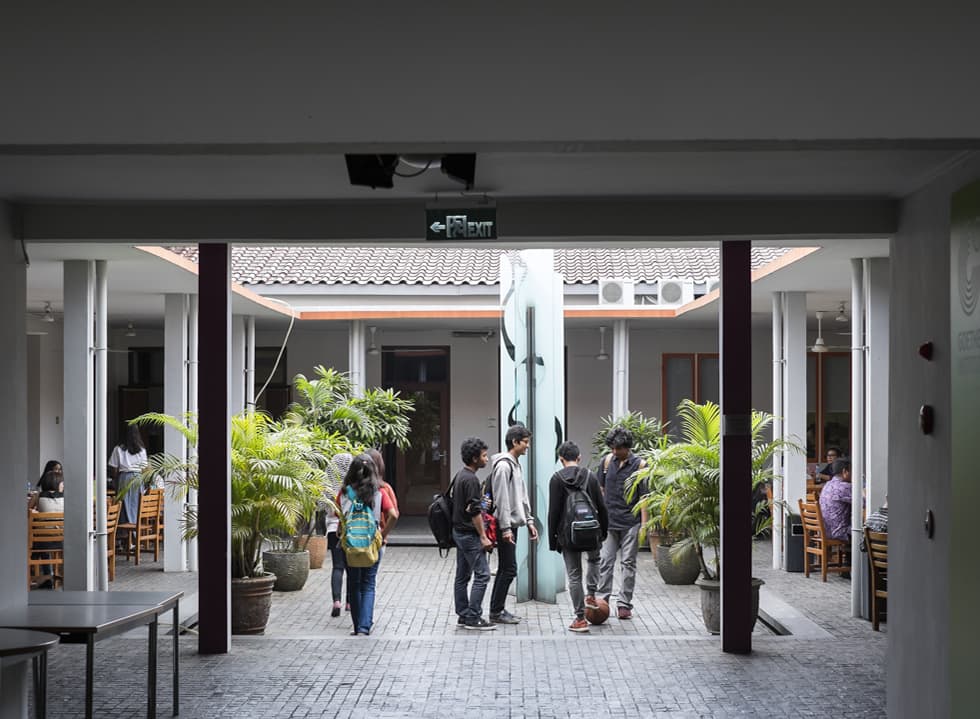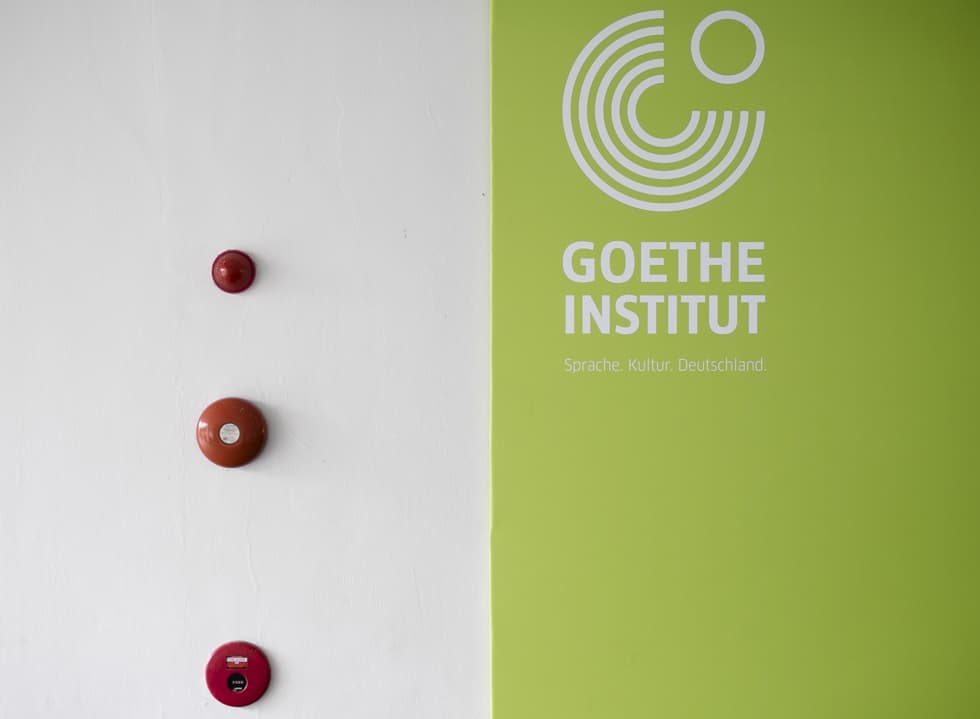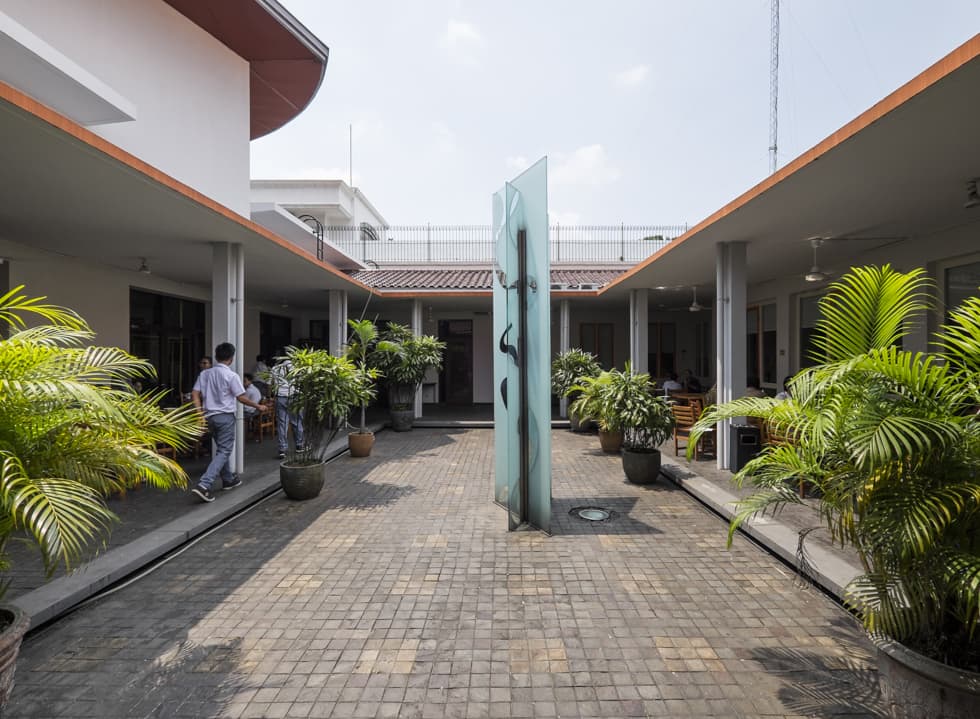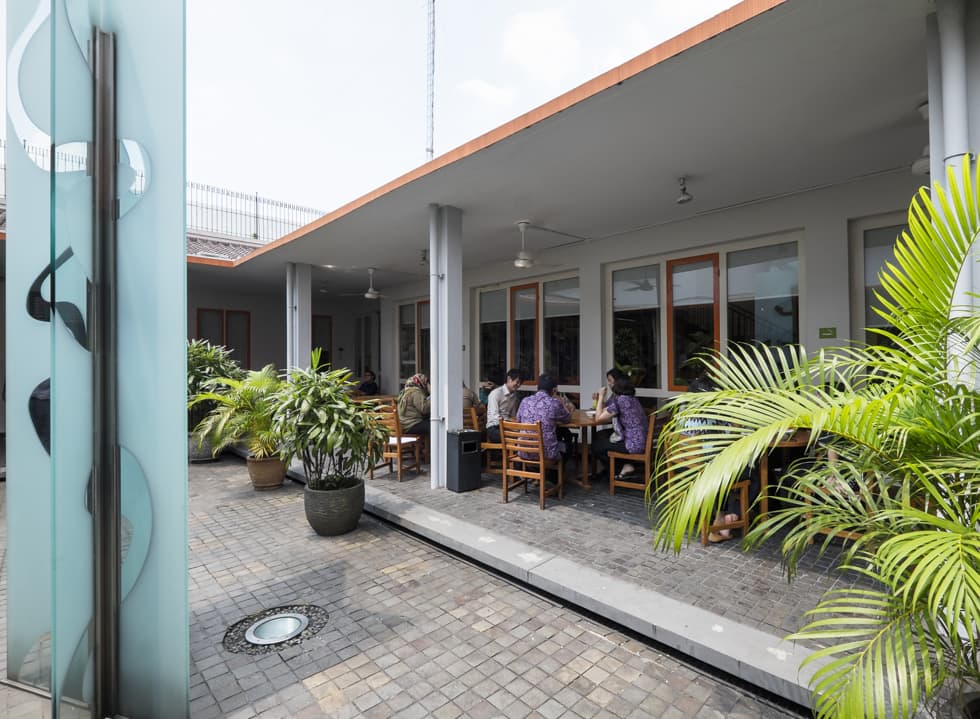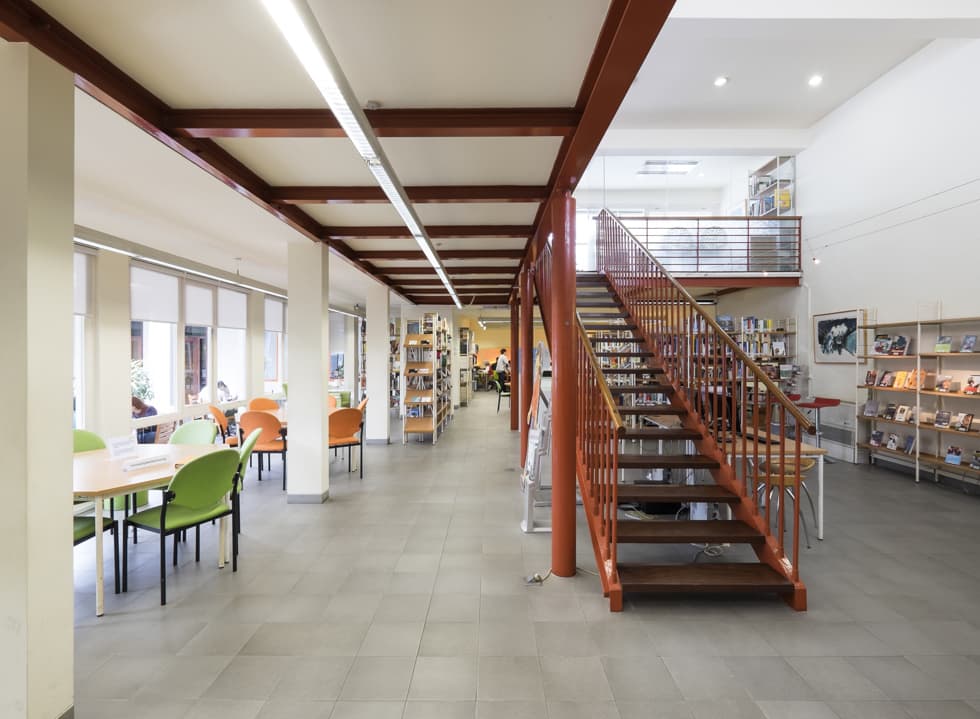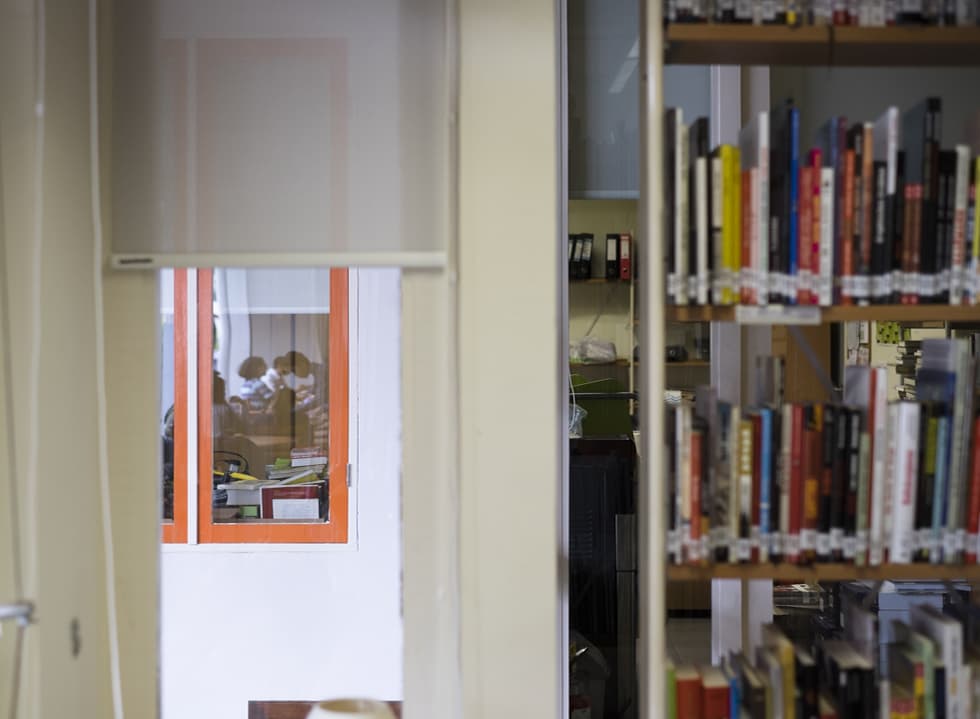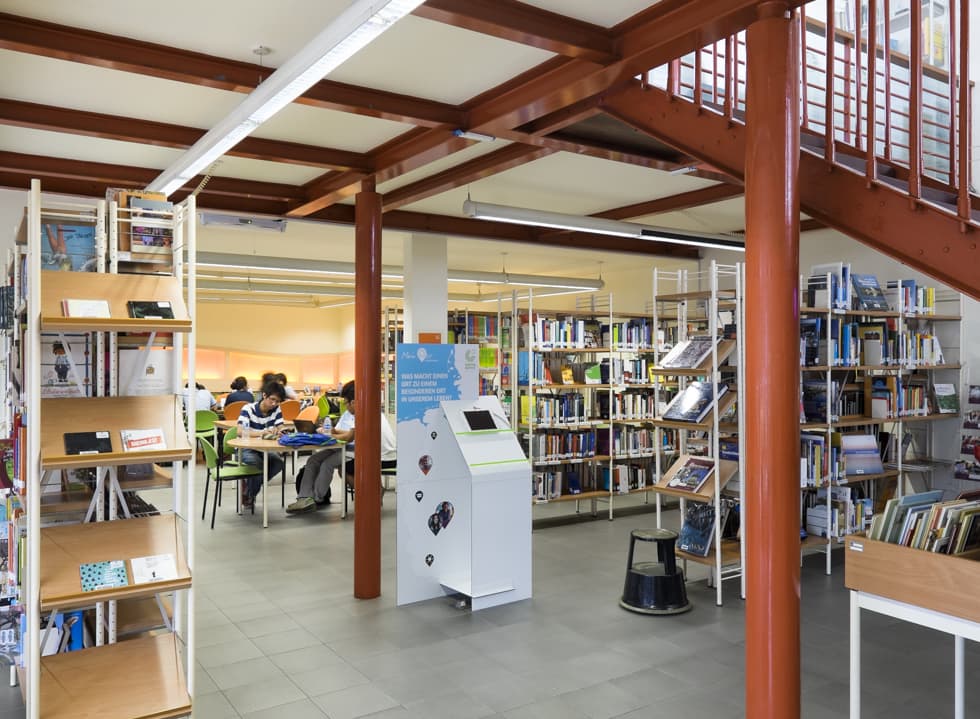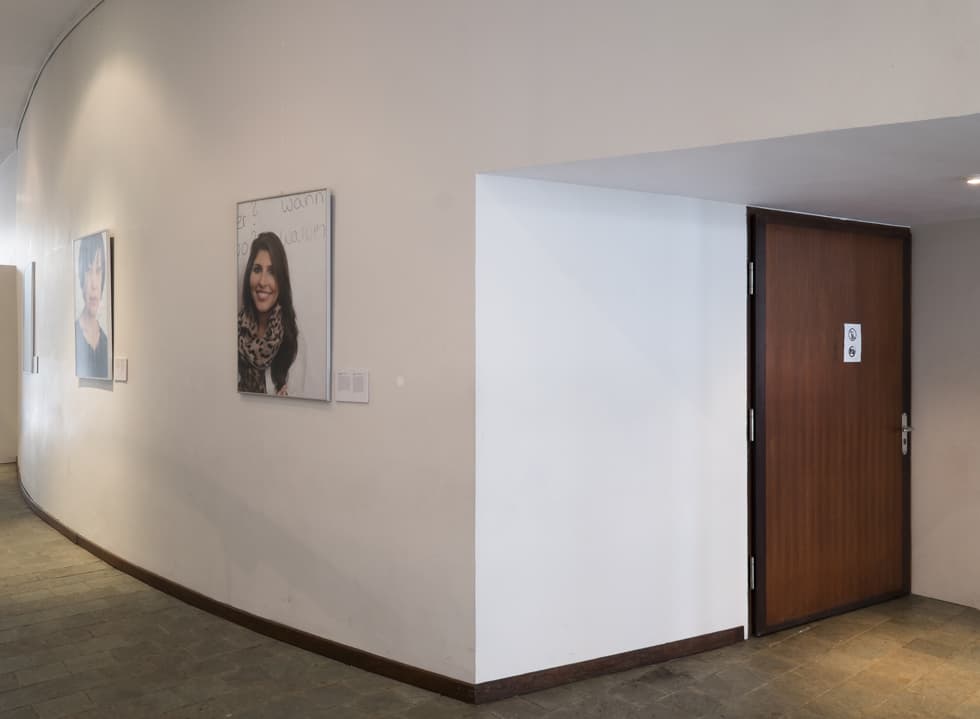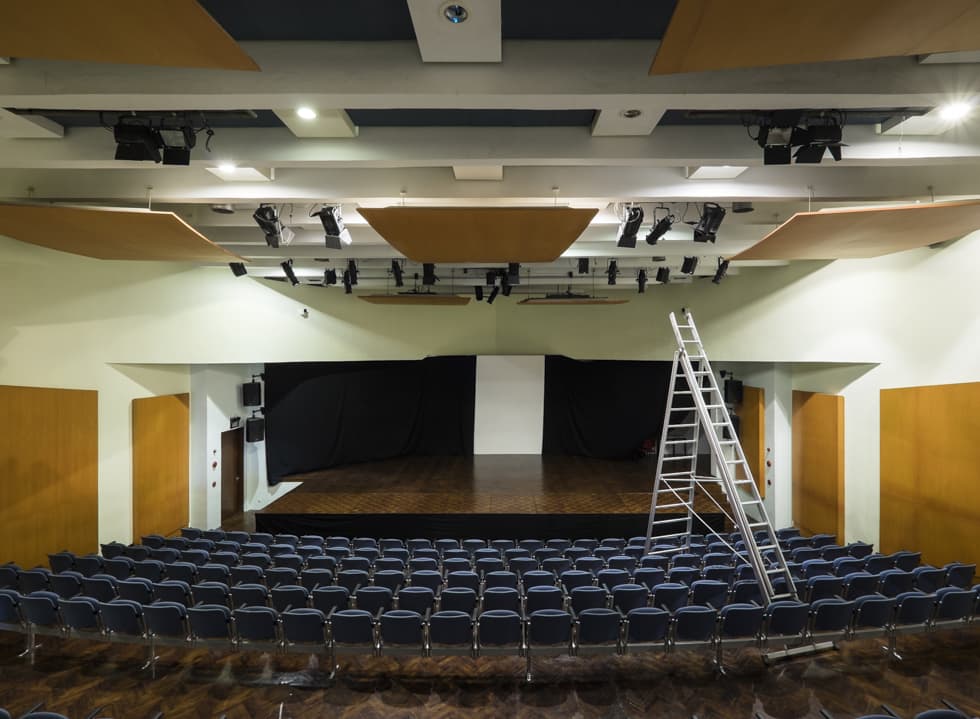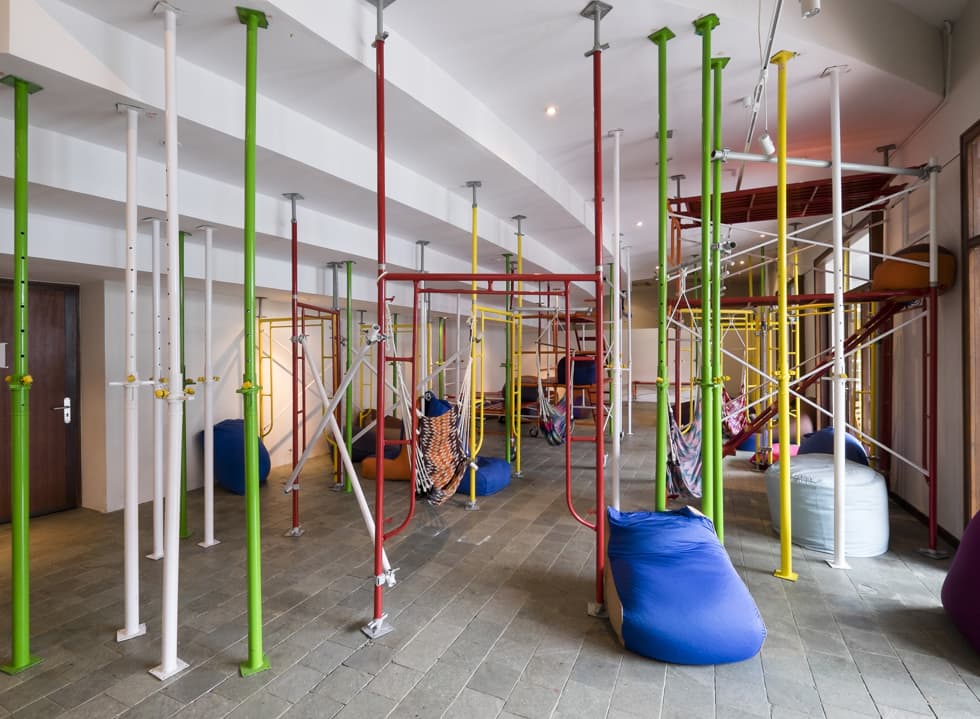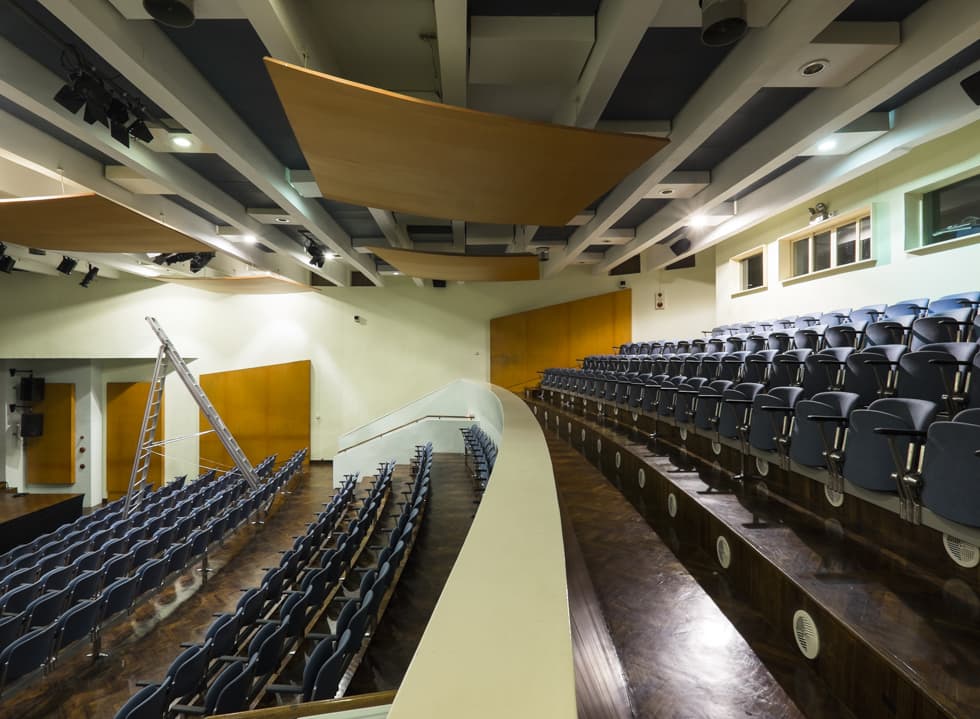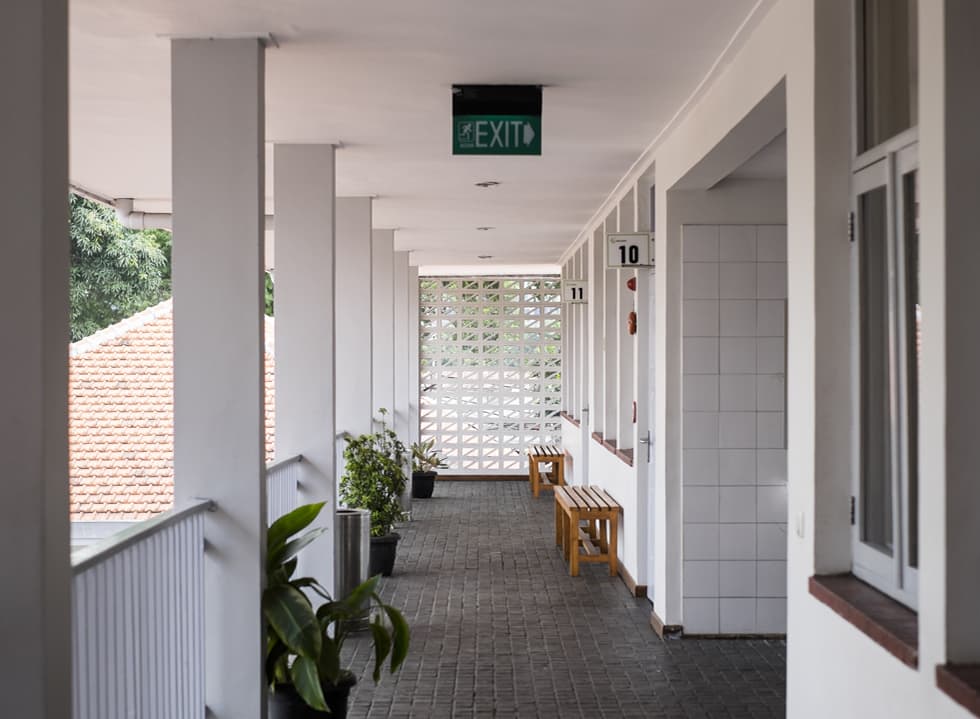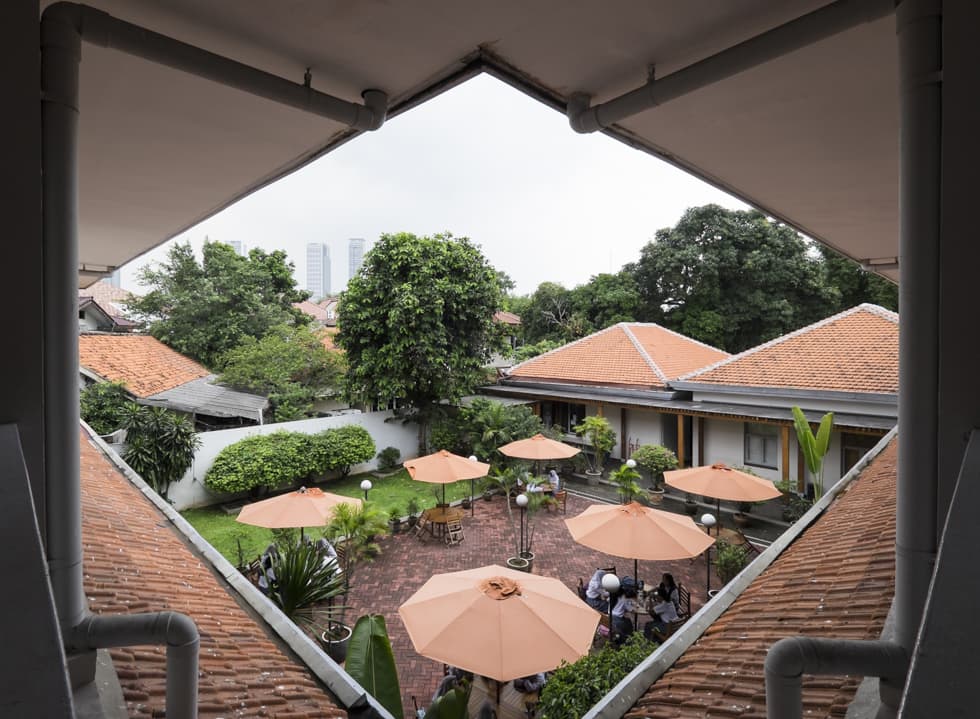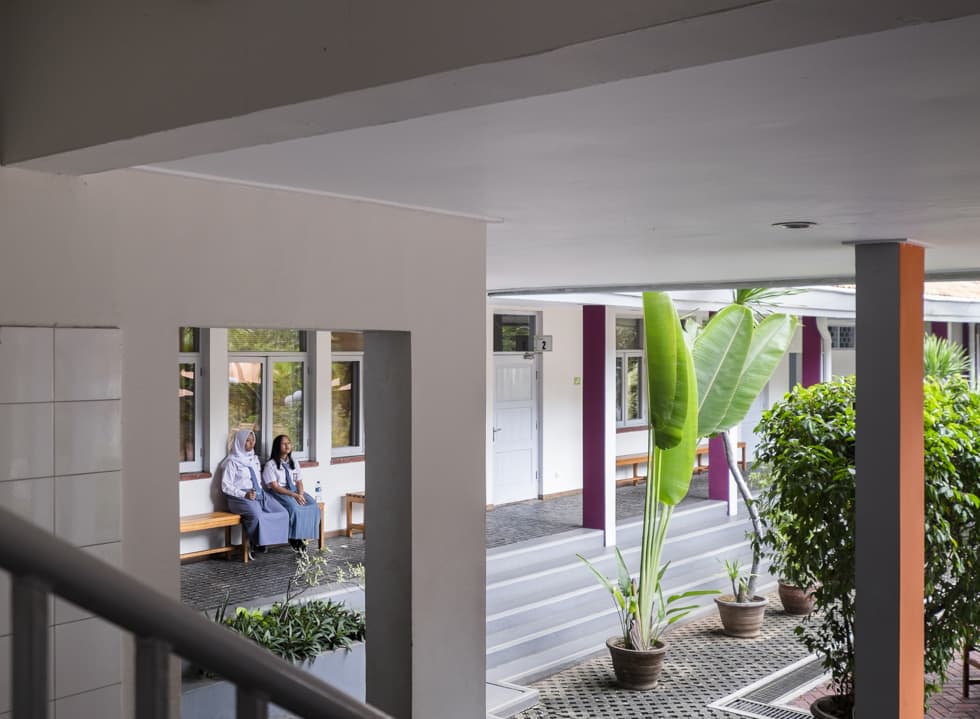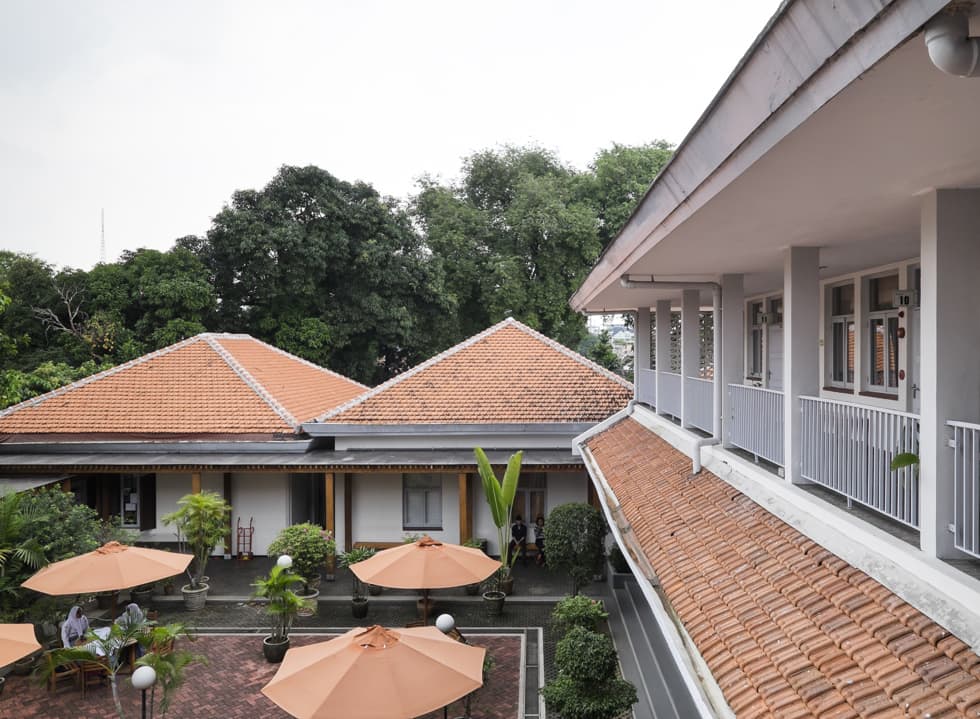The metropolitan city of Jakarta with its changing trends and developments is also known as a hive of arts and cultural activities. At the core of these creative movements, are often foreign cultural centres, which actively promoting positive dialogues between Indonesia and the country they represent.
In our new series, we aim to highlight these foreign cultural bodies that often go deeper than merely strengthening bilateral relationships between relevant countries, but often times, also act as the vanguard of progressive ideas. For the first of the series, we bring to you the history, architecture, and day-to-day activities of the Federal Republic of Germany cultural institute, the Goethe-Institut.
Despite the immense scale of activities and festivities people often identify the place with, Goethe-Institut with its modest façade is not in the least imposing. Rendered in pristine white with terracotta roof, passers-by often fail to notice its presence and are only reminded later on by a conspicuous bus stop sign inscribed with a big “Halte Goethe-Institut”.
Rather than erected as a single multi-storey building, the German institute is lodged in a low-rise building compound at Dr. Sam Ratulangi Street in Menteng. The front end of the institute that greets you is unmistakably of Dutch architecture – a palpable cultural remnant from the colonialism period that is pervasive in the area – which in fact, is listed as an old-heritage class building by the Indonesian government.
Bought sometime in the 70s by the German government, the building was once German International School (Deutsche Internationale Schule). When the building could no longer accommodate the flourishing amount of students, it moved out. Only then in 2001, the institute arrived.
“After the German school moved out, the building was renovated to certain extent,” said Dr. Heinrich Blömeke, the Regional Director of Goethe-Institut of Southeast Asia, Australia and New Zealand. For instance, what was once a rectangular pool for the kids to splash in is now a foyer that separates Goethe Haus and library.
Despite of a few improvements, the “school vibe” of the former international school still remains. Starting from the layout, one simply couldn’t get pass the building plan’s semblance to a local public school’s.
To begin with, the institute strives to befriend the local climate. Linking one building to another are open-air corridors that permit fresh air to breeze through. Right up the corner, a patch of greens is added for good measure, providing a soothing break for the eyes from deciphering German texts.
The layout of the institution evokes those good ol’ school days what with its corridors, classes and yards. And true to the institute’s nature, their role does resemble that of a school
“The main activity [of Goethe-Institut] is offering language courses for Indonesians who are mainly interested to learn the German language,” explained Dr. Blömeke. The point of interest for language studies is their compact library, a place where you’ll be blessed with a wide collection of German literature and learning sources such as books, music and films.
Aside from providing language course, the institute also hosts a variety of activities, where most take place in Goethe Haus, the institute’s very own auditorium. Occupying the building right beside the office, the presence of Goethe Haus lies at the root of these events over the years.
“We explore chances for cooperation, and that can be very diverse,” said the director. It sure is; design, film, music, theatre, dance, you name it – the institute has been an ardent supporter of arts in any of its possible form. Such as Jerman Fest in 2015, a four-month festival organised by the institute spread across 23 cities involving artists and representatives from Germany and Indonesia, the massive scale of Jerman Fest shows how much the institute is committed in creating constructive exchanges for both countries.
However, Dr. Blömeke seeks to be all-inclusive when it comes to hosting events and that means not all programs are focusing predominantly on Germany-Indonesia relationship.
“[Goethe Haus] is important for us, and so far we are not using it only for Goethe-Institut’s programs. We’re also, so to speak, give or rent it – not for money or commercial considerations – to local partners, initiatives, and groups who need the space for their activities. Its location is quite in the central and quite accessible, so it is easier for people to come together,” said the director.
In particular, the auditorium sometimes sees performances by local bands as well, such as the popular pop & jazz sextet White Shoes & The Couples Company and indie rock band Efek Rumah Kaca.
In essence, Goethe Institut is a cultural centre that serves as a learning academy for everything that is German. But its inclusive attribute on being an all-embracing hub also makes it, as the director put it aptly, “It’s a platform for the society in Jakarta.”
For more information on Goethe-Institut visit www.goethe.de.
